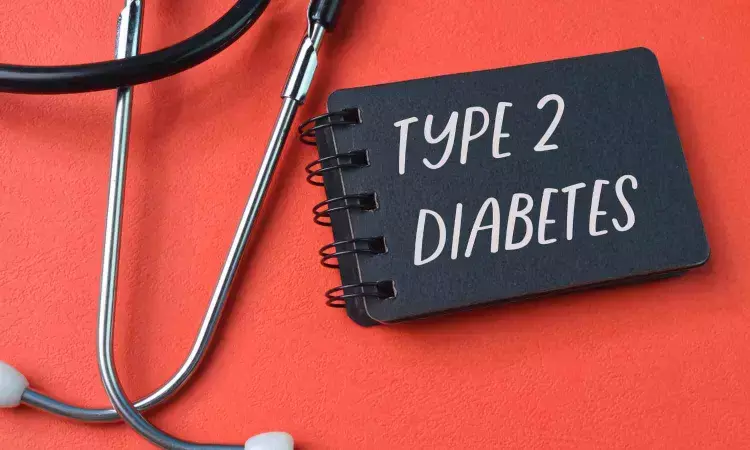- Home
- Medical news & Guidelines
- Anesthesiology
- Cardiology and CTVS
- Critical Care
- Dentistry
- Dermatology
- Diabetes and Endocrinology
- ENT
- Gastroenterology
- Medicine
- Nephrology
- Neurology
- Obstretics-Gynaecology
- Oncology
- Ophthalmology
- Orthopaedics
- Pediatrics-Neonatology
- Psychiatry
- Pulmonology
- Radiology
- Surgery
- Urology
- Laboratory Medicine
- Diet
- Nursing
- Paramedical
- Physiotherapy
- Health news
- Fact Check
- Bone Health Fact Check
- Brain Health Fact Check
- Cancer Related Fact Check
- Child Care Fact Check
- Dental and oral health fact check
- Diabetes and metabolic health fact check
- Diet and Nutrition Fact Check
- Eye and ENT Care Fact Check
- Fitness fact check
- Gut health fact check
- Heart health fact check
- Kidney health fact check
- Medical education fact check
- Men's health fact check
- Respiratory fact check
- Skin and hair care fact check
- Vaccine and Immunization fact check
- Women's health fact check
- AYUSH
- State News
- Andaman and Nicobar Islands
- Andhra Pradesh
- Arunachal Pradesh
- Assam
- Bihar
- Chandigarh
- Chattisgarh
- Dadra and Nagar Haveli
- Daman and Diu
- Delhi
- Goa
- Gujarat
- Haryana
- Himachal Pradesh
- Jammu & Kashmir
- Jharkhand
- Karnataka
- Kerala
- Ladakh
- Lakshadweep
- Madhya Pradesh
- Maharashtra
- Manipur
- Meghalaya
- Mizoram
- Nagaland
- Odisha
- Puducherry
- Punjab
- Rajasthan
- Sikkim
- Tamil Nadu
- Telangana
- Tripura
- Uttar Pradesh
- Uttrakhand
- West Bengal
- Medical Education
- Industry
Age and Comorbidities significantly influence Time to first optimal glycemic control, reveals study

According to researchers, age and other comorbidities are believed to affect the time for the first optimal glycemic control among patients with type 2 diabetes mellitus (T2DM). To prevent organ damage as well as a myriad of complications that arise from diabetes, effective glycemic control is crucial. A recent study was published in the journal BMC Endocrine Disorders by Sintayehu and colleagues.
T2DM still is among the major public health concerns in the world due to lack of proper handling of the glycemic control, which further promotes the development of complications such as cardiovascular disease, neuropathy, and hypertension. These complications can be prevented if appropriate adjustments in the strategies of glycaemic control occurred at an early stage of the disease.
A total of 514 eligible adult diabetes patients were followed up retrospectively from Comprehensive Specialized Hospitals, Northwest Ethiopia, January 2017 to January 2022. Simple random sampling was used to select the participants. The survival status of the participants was determined using a Kaplan Meier curve, while categorical variables were compared by the application of the log-rank test. Predictors of time to the first optimal glycemic control were identified using a Cox proportional hazard model, and variables with a p-value <.05 were considered statistically significant.
Key Findings
• The study studied the medical history of 514 patients, of whom were 227 males and 287 females. It found that the median time of first optimal glycemic control was 8.4 months with an interquartile range, IQR of 7.6 to 9.7 months. Several key predictors were identified, affecting this time frame:
• Age: Delayed glycemic control was observed for patients aged 50–59 years, AHR = 0.63, 95% CI = 0.463, 0.859; 60–69 years, AHR = 0.638, 95% CI = 0.471, 0.865; and older than 70 years, AHR = 0.480, 95% CI = 0.298, 0.774.
• Diabetes Neuropathy: Presence of diabetes neuropathy is correlated with lower probabilities of rapid glycemic control; AHR = 0.629, 95% CI = 0.441, 0.900.
• Hypertension: The patients suffering from hypertension also exhibited a slower time frame to glycemic control; AHR = 0.667, 95% CI = 0.524, 0.848.
• Dyslipidemia: The patients with dyslipidemia took more time to reach the optimal glycemic levels (AHR = 0.561, 95% CI = 0.410, 0.768).
• Cardiovascular Disease: Cardiovascular diseases were associated with delayed glycemic control (AHR = 0.681, 95% CI = 0.494, 0.938).
The authors conclude that the age of the patients and their comorbid conditions such as diabetes neuropathy, hypertension, dyslipidemia, and cardiovascular disease significantly influence the time to achieve first optimal glycemic control in T2DM. With these results, treatment providers have to focus on early intervention and personalized approaches for treatment among these high-risk populations in order to achieve improved glycemic outcomes and minimize complications of diabetes.
Reference:
Chalie, S., Alle Ewunetie, A., Assemie, M. A., Liknaw, A., Molla, F., Telayneh, A. T., & Endalew, B. (2024). Time to first optimal glycemic control and its predictors among adult type 2 diabetes patients in Amhara Regional State comprehensive specialized hospitals, Northwest Ethiopia. BMC Endocrine Disorders, 24(1). https://doi.org/10.1186/s12902-024-01695-1
Dr Riya Dave has completed dentistry from Gujarat University in 2022. She is a dentist and accomplished medical and scientific writer known for her commitment to bridging the gap between clinical expertise and accessible healthcare information. She has been actively involved in writing blogs related to health and wellness.
Dr Kamal Kant Kohli-MBBS, DTCD- a chest specialist with more than 30 years of practice and a flair for writing clinical articles, Dr Kamal Kant Kohli joined Medical Dialogues as a Chief Editor of Medical News. Besides writing articles, as an editor, he proofreads and verifies all the medical content published on Medical Dialogues including those coming from journals, studies,medical conferences,guidelines etc. Email: drkohli@medicaldialogues.in. Contact no. 011-43720751


